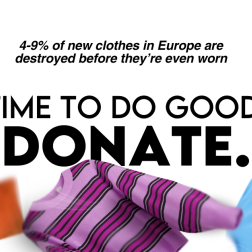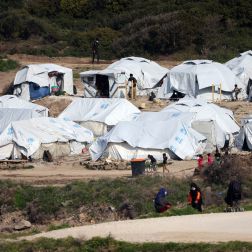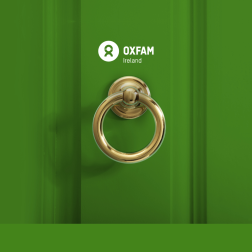- 4 mins read time
- Published: 12th June 2017
Somaliland: a day in the life of a dedicated, small-town doctor
Jama Abdi Abdile is a roving physician in a small village in Somaliland, who does not allow limited access to medication and inadequate facilities to hinder his patient care.

Jama Abdi Abdile, a doctor in Gawsawayne, Somaliland, makes do with what he can to treat his patients, many whom are suffering from malnutrition. Photo: Allan Gigichi/Oxfam
Small-town doctors have the unenviable task of making house calls at odd hours to treat patients with all sorts of maladies, often operating as one-person medical teams. It’s a tough job no matter where you live, but even more complicated when there are no clinical facilities for miles and your access to medication is limited. These are the conditions under which Jama Abdi Abdile, 43, a roving doctor in Gawsawayne, Somaliland, practises.
Somaliland is suffering from a massive food crisis, part of a humanitarian emergency that is touching nearly 30 million lives in Somalia, Nigeria, Yemen, and South Sudan. Across the Somaliland region, water levels have rapidly declined and widespread loss of livestock is devastating communities that depend upon them for milk, meat, and to earn a livelihood.
Gawsawayne lacks a health centre and essential health services. Abdile is the only trained medical professional in his village, so his home doubles as his office. “This is a family home,” he says. “There is no dedicated health centre with all its facilities and separated care rooms.”
Mainly, he travels from house to house visiting patients and treating them with medications he has stockpiled in his home. Currently, there are 177 malnutrition cases, including pregnant women and breastfeeding mothers, in his village. Every month, he reports, the number of cases has increased. In March, there were 84 people suffering from malnutrition in his town, mostly children.
“We have never been this busy,” he says. “There is constant pressure now and we have no transportation to go around and visit patients. There are so many difficulties, but I try to do what I can.”
The first week of April brought some relief. Oxfam began trucking clean water to households in the Sanaag region, including Gawsawayne. Now his village receives over 15,000 litres of water every day. The clean water has enabled Abdile to do his job more effectively.
Follow along as he walks us through a day in his life, gathering water, mixing medications, and visiting with patients.

Photo: Allan Gichicgi/Oxfam
Abdile collects clean water from an Oxfam-supplied water truck. Before Oxfam arrived, Abdile’s community sourced their water from a shallow spring that had grown filthy. An Oxfam Water, Sanitation, and Hygiene (WASH) engineer called it the most contaminated water supply he has seen in 20 years of working for Oxfam.

Photo: Allan Gichicgi/Oxfam
Abdile mixes water with oral rehydration salts (ORS) syrup, which is used to fight dehydration.
“The Oxfam water has helped the whole community,” he says. “The health service takes a big chunk of this water. The mineral water we were using was from a faraway place and cost us a lot of money. It was difficult to mix with the syrup. The water provided by Oxfam is given to us free of charge. We are mixing up the ORS and everyone is drinking it.”

Photo: Allan Gichicgi/Oxfam
Abdile sorts through the medications he stores at home. He notes that the water has made it easier for patients to swallow their medications. With villagers now drinking and cooking with clean water, he hopes that they are less likely to become ill.

Photo: Allan Gichicgi/Oxfam
Abdile checks on Zaymid Mohammad, 25. She is seven months pregnant with her ninth child and has been feeling tired and weak. The majority of Abdile’s patients are women and children. “Mothers and children are most vulnerable to diseases,” he says. “When people have immune deficiency, which is related to a lack of food and nutrition, they are vulnerable to all sorts of diseases.”
A devastating food crisis is threatening the lives of 30 million people across East Africa, Yemen and north-east Nigeria. We have already reached thousands of people with food, water, sanitation and support – but many more urgently need our help.




